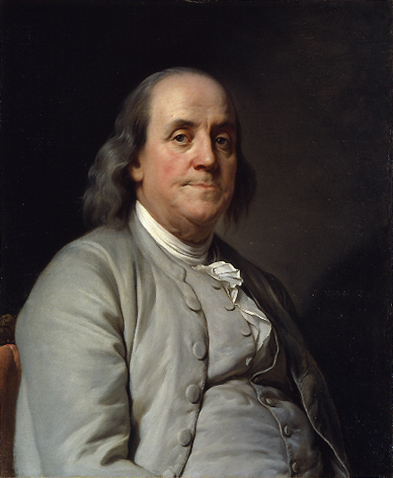Every year, Americans celebrate the Fourth of July, which commemorates our successful revolution against British colonial rule. It’s an important national moment—but it’s also an important international moment when viewed against the context of the greater British empire. At the time, the Empire was considered the most tolerant and liberal entity in the world—why and how did the American settlers come to the conclusion that they would be best served by breaking free and setting off to their own?
Guest James M. Vaughn helps us understand the little known international context of a well-known national moment, pondering questions of politics, economics, and ideas that transcend national boundaries.
Guests
 James M. VaughnAssistant Professor in the Department of History at the University of Texas at Austin
James M. VaughnAssistant Professor in the Department of History at the University of Texas at Austin
Hosts
 Henry Alexander WiencekIndependent Scholar
Henry Alexander WiencekIndependent Scholar
Just last week, we celebrated the Fourth of July, the consummate national event commemorating our successful revolution against British colonial rule, but you’re here to argue that we should not regard July 4, 1776, as a strictly national moment of history but rather a global one that reflects questions of politics, economics and ideas that transcend national boundaries. One particularly important international context for this moment is the British Empire. Can you talk about the state of Britain’s empire before 1776 and how the 13 colonies fit into that?
That’s a great question.
To coin a phrase, my main interest is “de-provincializing” the American Revolution. Now, of course, the 13 colonies that revolted in 1775 were 13 provinces of the wider British empire, and it was a revolt of essentially British provincials on the far western edges of that empire. What often is missed in the American Revolution and the story of the development of the British Empire is that it didn’t just take place in an internal context of either colonial North America or the British Empire, but really in a transnational, transatlantic context of the development of a commercial and manufacturing society.
Long story very, very short: traditional agrarian civilization had begun to break up in areas of northwestern Europe in the 14th and 15th centuries. And, in key places such as the Netherlands and England and other areas of northwestern Europe by the late 17th and early 18th centuries, that traditional agrarian civilization had begun to be replaced by a commercial and manufacturing society. Now, there wasn’t really multiple commercial and manufacturing societies, rather there was an interdependent, cosmopolitan commercial and manufacturing society that stretched from places like Lyon and Marseilles all the way to London and Bristol across the Atlantic to New York and Philadelphia and Boston. That was a profoundly interdependent society in which people produced and worked and exchanged the products of their labor in an ever more complex division of labor and an ever wider market with one another.

The British Empire was fundamentally bound up with the development of that trans Atlantic commercial and manufacturing society. It was both the cause of that society to be able to rise, the founding of those colonies, the development of raw materials and staple products to be produced and sent back to Europe from those colonies, also the development of those colonies as markets for manufactured goods that were produced in Europe, and these were important to the rise of that commercial and manufacturing society. But it’s also the case that the British empire drew its strength from the development of that commercial and manufacturing society, meaning the British empire drew its revenues, its customs, its resources from the flourishing of that empire.
By the middle of the 18th century a very symbiotic relationship had developed, where the British Empire furthered the development of an ever more expansive transatlantic commercial and manufacturing society and directed the development of that also benefitted from the terms of its development, the taxes and the resources levied on the goods and commodities exchanged throughout that empire. So it was a very beneficial relationship.
You’ve touched on a really important dynamic, this trans-Atlanticism within the British empire. How did that impact the way in which American colonists interacted or thought about other British colonists in places like India and Ireland?
That is a very excellent question, because there is a complexity to the way that American colonists think about their relationship. In many respects, the conception of the American colonists is that they were like British subjects in England, Scotland and Wales itself, that is, that they were direct subjects of the British crown, and that they had their own little parliaments, just like England and Scotland and Wales had the Parliament sitting in London. And they viewed the extension of British trade and the extension of British colonies as also being about the extension of British laws and British rights. So they almost viewed themselves as a kind of “Britain West,” and, again this is by the mid-18th century, they viewed their legislature as having the same kind of status that Parliament had in Britain itself and that they were direct subjects of the crown and had all the traditional privileges and rights thereof.

Now, in the context of when they begin to debate with imperial officials, specifically in the 1760s, there is a desire to both assert their traditional privileges and rights as British subjects, but they also begin to assert the Natural Rights. This is not reducible merely to an inherited British discourse of rights, but this is really trans-Atlantic Enlightenment discourse. There’s a complexity to the imperial relationship: they think of themselves as full British subjects with all the rights and privileges that metropolitan Britons have.
Can you talk about that a little more, these Enlightenment ideas that transcend national boundaries? Can you explain a little bit what those ideas are forwarding, and what role they played in the British empire?
Let me address the Enlightenment first.
It’s commonplace to say things like “Scottish Enlightenment” or “French Enlightenment” or people speak of a “Neapolitan Enlightenment,” but I would reject that, I think that there’s just one Enlightenment, and it’s about anyone who has access to it, that can read either the original languages or translations of the ideas circulated in pamphlets and newspapers, and debate and reflect on them in a coffee house, in a public square, in a tavern. What becomes really central to that enlightenment is a sense in which people begin to feel as though they’re responsible for the creation of their own world.
That’s a complex idea. Let me focus on two thinkers, both of whom were important to the American colonists: John Locke, and Jean-Jacques Rousseau, both kind of classic thinkers in the social contract/Enlightenment tradition.
John Locke had fundamentally said that the basis of the polity should be life, liberty, and property. Now, what he defined property as was labor: nature transformed by labor. So, within Locke’s conception there emerged an idea that human beings created property, that property was not divinely ordained, that property was not things that people had innately in them, such as aristocrats having the property of the honorable and noble, but rather that property was something that came to be through individual endeavor and peoples’ collective endeavor to one another. And that people transformed the world and themselves and created claims to property in so doing. Locke gave a sense of the world as a product of human interaction, humans working together individually and collectively to transform the world around them.

Rousseau, with The Social Contract and The Second Discourse on Inequality published in the 1750s and 60s gave the idea of men and women as really products of the societies they built. That there’s not immutable essence, but rather that men and women change over time given the kind of societies and historical frameworks they develop themselves.
So, what’s really important about the Enlightenment, which takes place from the late 17th to the late 18th century, and is really the fundamental background of the American Revolution, is a growing sense through Lockian idea of property being a product of labor and Rousseauian ideas of the social contract and men and women being responsible for the creation of their societies over time, there comes a sense not simply that human beings change but that human beings can be agents of their own change.
The only other thing that I want to say about the Enlightenment is that it wasn’t just an intellectual accomplishment, it was a social factor. Because of the rise of commercial and manufacturing societies, there were new urban spaces, there was an entire extra-parliamentary, extra-political culture that existed in the world of coffeehouses, in the world of taverns, in the world of theater, in the world of public discussions in the exchanges and marketplaces of Amsterdam, of Rotterdam, of Charleston, of Philadelphia, of Bristol, of Liverpool and, in that world, people came together and discussed the latest publications and debated ideas. It wasn’t noble people of blood and birth that went out, but rather, it was people who could persuade others that their ideas were right that went out.
It seems to be an interesting irony of this period that the American revolution was not an inevitable fact and that a lot of individuals like Thomas Payne and Benjamin Franklin prior to 1776 were not advocating for independence from Britain but for reform within the British empire. Can you explain a little bit how that thinking evolved?
That’s an excellent question. A very famous historian, Gordon Wood, of American history calls this process the “Americanization” of Benjamin Franklin, and I think it applies to a whole host of the revolutionary generation, as much to people like Jefferson and Adams, as to people like Paine and Franklin. And what it is, is these fundamentally enlightenment men and women who participated in a world of pamphlets and coffeehouse, of lawyerly suits, parliamentary debate, of discussion, these people that also argued in salons and debating societies — many people, not just British subjects, thought of the freest society, not just in the West but in the world in the late 18th century, as being the British empire.
Many people thought that, with the possible exception of the Netherlands, the British empire was the most religiously tolerant society, even though it had an established Church of England, it had de facto an incredible proliferation of not just Protestants but even non-Christian religiosity. It had a parliamentary system that, although very few people could vote in, that nevertheless gave relative transparency to government and was based on elections every seven years and people could riot and influence the electors. Furthermore, it had ended absolute monarchy; the English revolution in the 17th century had brought divine right monarchy to an end and suggested that there has to be some kind of consent and some degree of representation in political affairs.
Now, people thought that the British Empire was the best embodiment of that. And, especially someone like Franklin, and especially someone like a young Thomas Paine were absolutely supporters of Britain’s wars against France, because they saw France as an alternative model–an absolute monarchy with an intolerant Catholic church, not allowing the same kind of freedom of discussion and association that the British world did — in fact, one of the greatest French philosophs of the 18th century, Voltaire, wrote his philosophical letters as a reflection on his time in England, and what an open and free society it was: he viewed it as a model of the future in Europe.

What happens in the 1750s and 60s is in the wake of the seven year’s war and the imperial reforms, and the coming confrontation between metropolitan ministers and officials, and radical figures like Benjamin Franklin and Thomas Paine, what begins to happen is that there is initially a movement for the reform of the British Empire, the desire that it change. There is a growing feeling that this empire and its political and social institutions are no longer adequate to the kind of new world that’s coming into being in the 18th century Atlantic. At first, they want reform, they want changes. They want things like the reform of the parliament, the expansion of the franchise, the inclusion of new groups and the right to vote. They want the colonial legislatures to have a say in producing colonial policy, or they want an imperial parliament: the colonies to be able to send representatives to London and sit in the parliament, hence the famous revolutionary cry: “no taxation without representation.” They move toward reform.
It’s only when they believe that reform is no longer possible, that Britain is irredeemably, in their view, aristocratic and oligarchic, that they come to the conclusion that there is no possibility of reform but rather the necessity of revolution. The necessity of break–that is the seabed of American independence, but it should be said that it was an incredibly difficult intellectual and political process for people like Thomas Paine and Benjamin Franklin to come to those conclusions. They genuinely thought that, for all of its foibles, the British Empire, with all of its exploitation of Ireland, for all of its toleration of the existence of West African slavery, for all of its incredibly oligarchic politics, that it nevertheless had been the best heretofore vehicle of the expansion of prosperity and enlightenment and freedom, and so it really took a very long, complex, and difficult process for them to be willing to reject it.